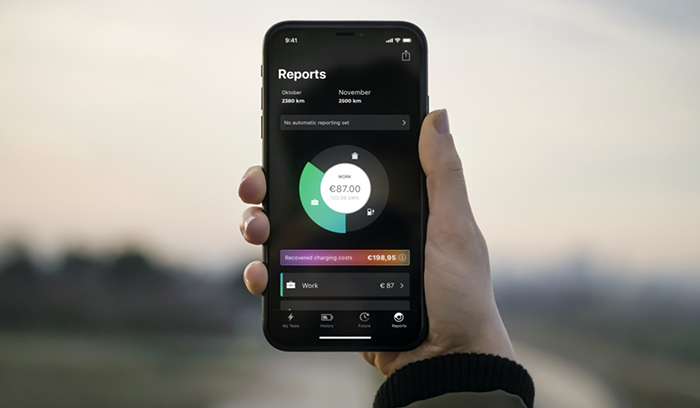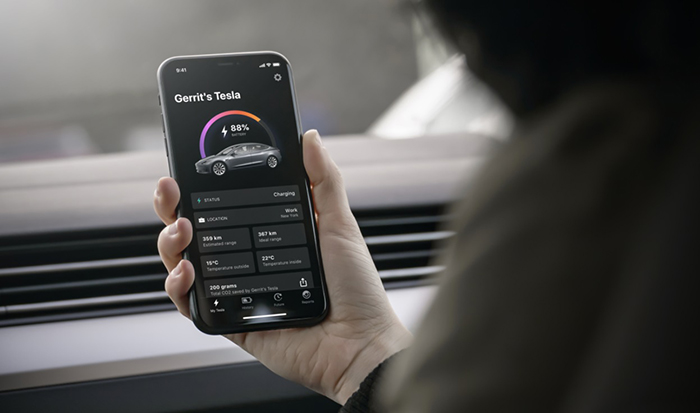EEVEE Mobility, the company creating digital products and services that make the EV charging and driving experience seamless, today announces a commitment to Corporate Social Responsibility (CSR) during the next phase of its business growth.

The new business vision includes a brand-new app, compatible with EV models from BMW, Mini, Ford and Mustang. It also boasts additional features such as letting drivers monitor and forecast CO2 reduction levels and the ability to predict vehicle mileage, range, drain & battery health.

As part of the CSR pledge, EEVEE also plans to integrate its software with 20% of all EVs in Europe and partner with all major car manufacturers by 2026 to help support its overall goal making EV adoption faster and smarter for everyone.
Table of Contents
Corporate social responsibility is driving EV adoption
EV adoption is becoming increasingly important for businesses pursuing CSR goals. First mover companies have been looking for solutions to accurately track the ecological impact of EV’s on the corporate sustainability strategy for some time – an issue that EEVEE plans to help solve with its new vision and app.

Steffen Brans, CEO of EEVEE Mobility said:
“The first step towards a brighter EV future was to recognise that EV drivers around the world were experiencing inconveniences that petrol cars weren’t facing. At first our focus was on solving these problems whilst adding value for EV drivers. However, soon we experienced increased demand from companies to help them facilitate EV adoption. Customer research taught us that CSR goals mostly drive the adoption in companies and to achieve these goals companies need more tangible, data led insights and compatibility with more vehicles – and so we built the latest version of the app with this very much in mind.
A lack of convenience and transparency needs to be addressed
As the EV market increases, the potential adoption is often hindered by the lack of convenience, transparency and cost awareness for drivers. Governments focus on TAX incentives and infrastructure hurdles, but drivers and companies are struggling with much more practical challenges such as how to reimburse professional home charging and what influences the Total Cost of Ownership of a vehicle.
Steffen Brans said:
“Another issue we rarely talk about is the battery drain when you park your EV. It’s barely noticeable in everyday life, but it can be a serious problem when drivers leave their car for extended periods of time. One of our early users emailed us explaining that every time he parked at an airport, he feared he wouldn’t have enough miles for his trip back home.”
This concern was the starting point for the EEVEE team to use Artificial Intelligence to make accurate data predictions. When an EV driver parks the car, AI accurately predicts mileage for a range of 1 to 30 days.
In the latest version of the app drivers now know they will have sufficient battery left to make the trip home and have the peace of mind they experienced driving an ICE vehicle. This same AI technology is used to predict the car’s battery health over 6 months, 1 year and 3 years.
Big car manufacturers onboard
EEVEE is delighted to welcome EV drivers from BMW, Mini, Ford and Mustang to join its growing community of over ten 10,000 EV drivers across 63 countries currently using its app.
While conversations with all the major car manufacturers are always ongoing, previously only Tesla owners were able to link their cars in the original app. As well as BMW, Mini, Ford and Mustang, EEVEE is also continuing talks with several other car manufacturers to enable its services for their vehicles.
Steffen Brans said:
“The message from the car manufacturers is loud and clear: the future of driving is electric. The mission of EEVEE Mobility is to make this EV adoption as easy as possible for drivers and companies by removing all friction. We are currently having a lot of constructive discussions with almost all car manufacturers. The technical complexity means that integrations are often slower than we would like, but all the manufacturers we talk to are convinced of the added value for their customers.”

COMMENTS